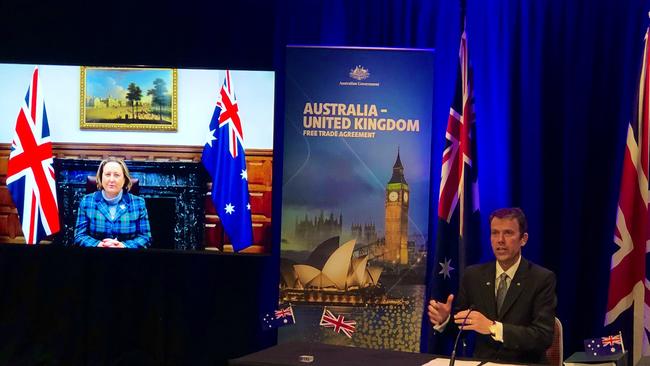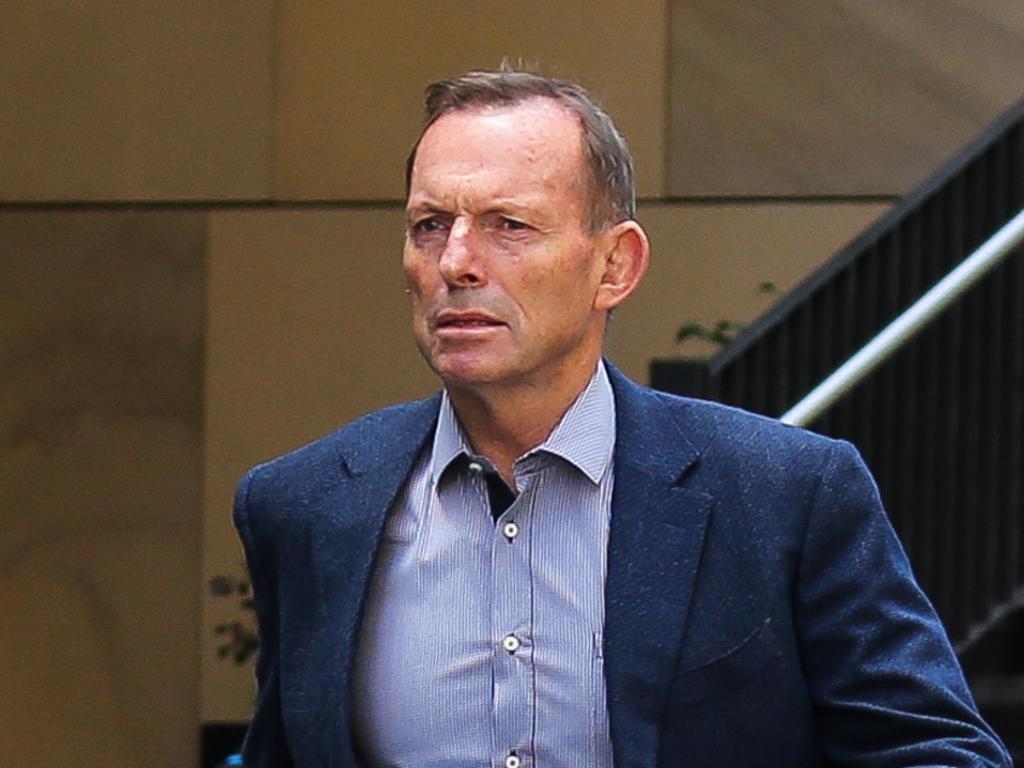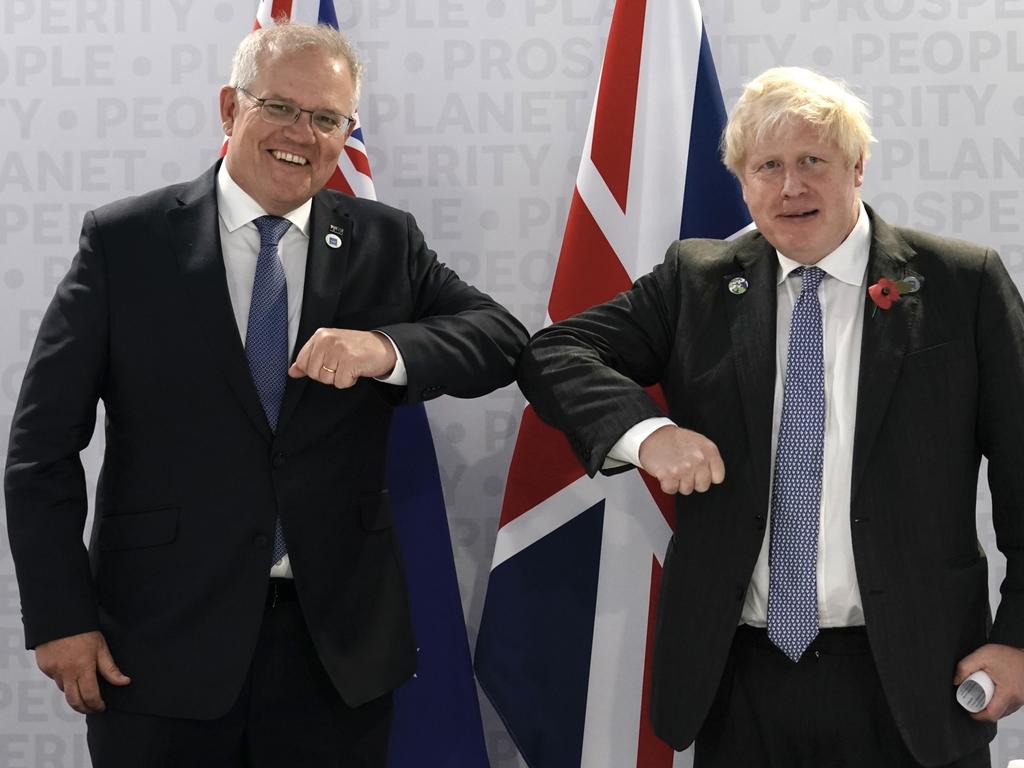
In those days Australians freely could live, work and vote in Britain. And Britons could do likewise here. This sense of family that existed between our two countries, founded on ties of language, history and blood spilt in a good cause, explains federal Trade Minister Dan Tehan’s observation that the finalisation of the Australia-UK Free Trade Agreement “rights a wrong” – the wrong done in 1975 when Britain entered what was then the European Economic Community and erected tariff walls against Australian goods and immigration walls against Australian citizens.
As recently as World War II, more than 90 per cent of Australians were descended from the people of the British Isles. Even now Britain is the second largest overseas investor in Australia; Britons are still among the largest groups of tourists and immigrants into Australia; and Britons and Australians hardly ever feel like strangers in each other’s countries. Yet thanks to the UK’s long interlude under the juridical constraints of Europe, our trade partnership with Britain dwindled from our largest by far to about our fifth.
The deal finalised on Friday is not going to turn back the clock. Brexit notwithstanding, this is not “empire free trade” mark II, with free movement of people and goods within the old Commonwealth and high barriers against outsiders. Australia wants freer trade and stronger economic partnerships with all like-minded democracies that accept the rules-based order (including the EU). But it is a big step forward for “Global Britain”; its first start-from-scratch trade deal since leaving the EU; and it is a big addition to the other bilateral deals negotiated by the Coalition government in Canberra.
As Tehan said on Friday, other than with our trans-Tasman siblings, this is by far the most comprehensive trade deal we have. Not only will all traded goods eventually be tariff and quota free (and 99 per cent of our goods will get duty-free access to the UK immediately) but it will be far easier for Britons and Australians to live and work in each other’s country. Any Australian under 35, for instance, will be able to live and work in Britain for up to three years as a working holiday-maker. And vice-versa. Many British companies will be able to relocate staff to Australia without being subject to the skilled occupation list. There will be instant economic benefits, such as a $200m price reduction for Australian buyers of British goods; but most of all, this deal should reinforce the “mystic chords of memory” that most Australians and most Britons still have for each other.
Not for nothing, after all, did polling show that Australia was Britons’ overwhelming preference as the country for their first post-Brexit trade deal.
It’s only in the first instance that trade deals are about economics. Countries strive for FTAs with the partners they think they can trust (or in the case of our 2014 deal with China, hope to be able to trust more, as we then did). In this sense, Friday’s trade deal perfectly complements the recent AUKUS agreement with Britain (and the US) to share with us nuclear-powered submarine technology. Given that we’ve had a US trade deal since the Howard era, it’s the economic piece that completes the overall AUKUS strategic partnership.
In my judgment, it ultimately may prove easier for the US to give Australia the nuclear technology that someone else already has. If so, it would make good sense for Australia to opt for the British Astute-class subs and to build at least the first two in British yards while training up teams to do more of the subsequent construction here. The finalised FTA would make that skills transfer much easier.
Britain has applied to join the Trans-Pacific Partnership, the free trade grouping proposed by US president Barack Obama as the economic arm of his tilt to the Indo-Pacific. So have Taiwan and South Korea (as has China, to spoil Taiwan’s bid). There’s no way now that China credibly could be admitted to any trade bloc, given its proven readiness to weaponise trade against countries such as us. The accession of three free countries (especially Britain, after the US, the West’s strongest military power) would be a sign of democratic solidarity in an increasingly polarised world. It also could be the catalyst the US needs to reconsider its unwise Trump-era abandonment of freer trade.
The finalisation of our trade deal with Britain shows that, after almost two years consumed by the pandemic, the other business of government has not been neglected entirely; and that our government can keep dealing with important long-term issues while still managing an immediate crisis.
Tony Abbott is a former Australian prime minister and an adviser to the UK Board of Trade.








Fifty years ago, Australia and Britain were hardly separate countries. It wasn’t just the same queen at the apex of our systems and the words “British subject” then still appearing on Australians’ passports. For Australians of my parents’ generation and beyond (think Clive James, Germaine Greer and Barry Humphries), a few years in London was as much a cultural homecoming as a rite of passage.